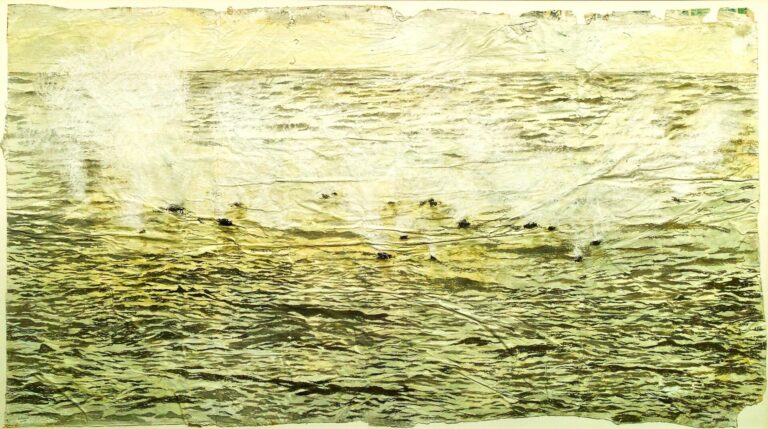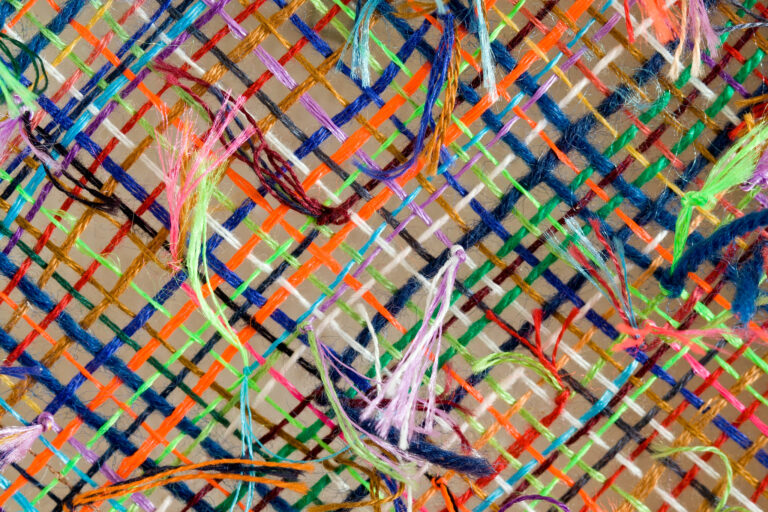This issue introduction reflects on the upcoming 2025 Cultural Studies Association Annual Conference theme, “Imaginary Futures,” and cultural studies futures. This issue contains several articles that address the “presencing” of possible futures, whether through Black popular culture; digital laborers, tech workers and online sex workers; cannabis commodity aesthetics and working-class Black and Latinx life in contemporary California; or racialization of the K-pop band BTS. This issue also features several articles in the special section, “Political Economy and the Arts,” edited by Katerina Paramana, contributions to “Aporias,” edited by Joshua Falek, and the Positions podcast, and six book reviews.
Articles by Chris Alen Sula
Chris Alen Sula is Associate Provost for Academic Affairs at Pratt Institute and Associate Professor in the School of Information. His research explores the digital humanities as a field, including curricula, the early history of DH, and disciplinarity. He has also published on citation studies in the humanities, the politics of technology, and ethical uses of data and visualization.
Editors’ Introduction
This issue of Lateral introduces new features and significant original scholarship, including the Feeding the Civic Imagination forum, the debut of Aporias, new additions to Years in Cultural Studies and Positions, three original articles, and several book reviews.
Editors’ Introduction: Cultural Studies toward a Free Palestine
Responding to Palestinian organizers’ calls to use our voice, continue to engage in conversations, and to speak out, this statement articulates what we see as the abolitionist and anti-colonial way forward—the only way we can commit to a free Palestine. Imagining and building alternatives is the future, the horizon of possibility, that Lateral, as part of the intellectual and activist project of cultural studies, is imperfectly but consistently striving toward. Here, we highlight work in this issue, including the Towards Third Worlding forum, articles, book reviews, and the second installment of the Positions podcast. We continue to welcome authors to join in this work of pushing the field of cultural studies further, towards its promise of critical inquiry matched by political engagement.
Editors’ Introduction: Lateral Changes
This issue marks the addition of a new co-editor and several special projects, including Lateral‘s first podcast, Positions. This issue presents two important sections of work, both building on conversations in the field and across publications: “The Black Shoals Dossier,” curated by Beenash Jafri, and the second part of “Crip Pandemic Life,” edited by Alyson Patsavas and Theodora Danylevich. In addition to these impressive sections, the issue features three research articles and ten book reviews.
Editors’ Introduction
In this introduction, the editors continue their reflections on scholarly editing in the pandemic, welcome two new co-editors, and announce a grant-funded initiative that builds on Lateral Forums. This issue features three regular articles, book reviews, and the first installment of a special section, “Crip Pandemic Life: A Tapestry,” which builds on the “Cripistemologies of Crisis” special section, edited by Theodora Danylevich and Aly Patsavas, last year.
Editors’ Introduction: New Milestones, New Initiatives
As we begin this second decade of Lateral, we reflect on the origins of the journal and new initiatives underway. We also consider the precarious nature of scholarly publishing and editing in the pandemic and reaffirm our commitment to this care work. This issue features three articles—two of which emerged from our articles-in-progress workshop at last year’s Cultural Studies Association annual meeting—as well as the 2021 Randy Martin Prize winning essay and a number of book reviews. We invite applications for our editorial team and proposals for new initiatives at the journal.
Editors’ Introduction: Materializing Immaterial Labor in Cultural Studies
This introduction frames the six original articles in this issue and the forum on “Corona A(e)ffects: Radical Affectivities of Dissent and Hope” around the concept of immaterial labor. Two full years into a pandemic that has uprooted place-based work for many, and forced even more indoors, away from public spaces, and onto screens, we reflect on the very material effects of present-day immaterial and emotional labor.
Editors’ Introduction: A Decade of Open Access in Cultural Studies
This issue marks the tenth year of publishing Lateral. We reflect here on this milestone and highlight work in the current issue, including a new forum on Cultural Constructions of Race and Racism in the Middle East and North Africa / Southwest Asia and North Africa (MENA/SWANA) and a special section on Cripistemologies of Crisis: Emergent Knowledges for the Present. We discuss several of these pieces in relationship to ongoing violence in Israel and attacks in the United States against “critical race theory” and conclude with calls for open access scholarship.
Cultural Studies in the Interregnum
This issue of Lateral contributes to a number of ongoing questions and conversations. In it, we see a range of methodologies that span particular sites, take up theoretical debates, and cross borders and boundaries, both political and cultural. The work of this issue sits in conversation with the present moment, even as it at times draws on and excavates the past. 2020 has seemed to both accelerate and extend a number of ongoing crises and emergencies that have defined the decade. Contributors to this issue are working in and through this gap. Many new structures, including a new structure of feeling, are ascendant, and the task of contemporary cultural studies is clear: thinking and theorizing the interregnum will define the work of the present conjuncture.
Editors’ Introduction: Abolition Now
Cultural studies continues to develop its schools of thought, methodologies, and disciplines that are abolitionist. The articles in this issue encounter cultural studies across a range of sites: India, Spain, China, the US, and other geographies. It points toward the importance of cultural studies in a variety of contexts, the ways that cultural studies stands as both an intense form of critique and the political possibilities for its enactment as a program of work.
Editors’ Introduction
This issue features six full length articles, the final section in the universal basic income forum that has spanned three issues, the expansion of our Years in Cultural Studies project, and a number of book reviews.
Editors’ Introduction: Opening Access
This introduction discusses the importance of open access scholarship and its relation to the academy. The introduction provides an overview of the articles in the journal, which include responses to the forum on universal basic income (UBI) published in issue 7.2. Finally, this issue marks the beginning of the Years in Cultural Studies project.
Editors’ Introduction: Expanding Laterally
This issue marks a number of important milestones for the journal and features a combination of peer-reviewed academic articles, a forum on universal basic income (UBI), and book reviews. With this issue we are also pleased announce a number of changes to the Lateral editorial team. These changes significantly extend the possibilities for the journal into the future, while reinforcing the work that is already underway.
Editors’ Introduction: Marxism and Cultural Studies
Cultural studies as a discipline and intellectual practice is deeply indebted to Marx, even as the field of cultural studies has contested, revisited, and updated Marx’s work. This issue points to a number of resonant threads currently active under the umbrella of cultural studies and opens possibilities for historical mapping of the many and varied aspects of marxist thought, in and out of the academy. The authors in this issue direct us toward and augment our understanding of the multi-faceted and inextricable links between questions of capital and questions of race, class, and gender power that have been the focus of US research in cultural studies especially within the past thirty years. In this issue, we continue and expand our editorial emphasis on the role of cultural studies in explaining and challenging the ongoing, intersectional significance of material power relations.
Editors’ Introduction: Cultural Studies and Intersectionality as Intellectual Practice
As a “critical social theory,” intersectionality already lies at the roots of contemporary cultural studies, and the best work in cultural studies has the capacity for or is already engaging with intersectionality as method. This is work that accounts for the multifaceted nature of subjects, institutions, processes, and structures as it asks its questions about cultural objects, experience, ideology, history, or discourses. Intersectionality as, along with dialectical materialism, a core intellectual practice of cultural studies, offers expanded possibilities for political traction, relevance to the world and people’s lives, and transformative potential. We see models of such work throughout this issue, including with part two of a special forum on emergent analytics of critical humanities.














